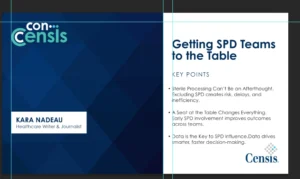OPEC+ May Raise Output by 500,000 BPD
Energy Aspects analyst Amrita Sen says that OPEC and its allies are likely to raise output by “anything up to 500,000 barrels per day” even as the cartel doesn’t have the capacity to meet potential increased summer demands. Tune in below as OPEC+ heads for a meeting that could prove crucial for oil prices.
Host: What are you expecting out of OPEC plus today?
Sen: Thanks for having me. Look, I think OPEC+ what we are expecting a small increase today for August. I think anything up to 500,000 barrels per day, like you said, GCC as a whole are very cautious of increasing production. They are worried about the delta variant Iran coming back. So they really want to add nothing. Russia wants to add potentially. We’ve heard even over a million barrels per day. So let’s split the difference, probably meet in the middle. That’s why we think, look, our view, very much is, is that it’s not going to be more than 500, but it could be less than that.
Host: So I look at a note from citi Amarita and they’re arguing that you’re going to see the markets still playing catch up here. And in fact, what you might see is oil prices go even higher. And that OPEC Plus is going to be behind the curve. They’re making the case for mid 80s for Brent crude. I wonder whether that’s in your projections at all.
Sen: Yeah, I mean, we absolutely think prices are going to continue to rise, especially if OPEC adds anything up to 500,000 barrels per day, it’s a drop in the ocean. We are expecting over three million barrels per day of strong growth in Q3. The market will take that as a nod to saying, yes, they’re doing something, but very much behind the curve on when it comes to adding barrels required for the summer. So we are expecting prices to trade above $80 as well, despite OPEC increasing production. If OPEC were to increase a million barrels per day, we might get a few dollars of correction, maybe $2 to $3. But even then, I don’t necessarily think that’s going to be long lasting as long as demand starts to pick up. So that’s the key variable over here. And, you know, the delta variant it has caused a lot of concern. But if demand is rising, we absolutely see prices back in the 80s.
Host: So OPEC likely to be behind the curve. And really, even if they did want to catch up, even if they did want to put enough supply out into the market to match the demands for the summer, do they have the capacity to do that? Is spare capacity a concern here?
Sen: The great question. And no, the simple answer is they don’t have enough capacity. Does Saudi Arabia, Kuwait, they have invested? Well, not throughout the pandemic, but just generally, they have the spare capacity. But even take Russia, for example, the last two months, they’ve actually been struggling to raise production even with higher OPEC plus quotas and a lot of countries. And you’re seeing that in Nigeria and Angola, so much debt, accumulated. Decline rates are accelerating. And just generally, we’ve had so much shut ins last year when oil prices crashed. It’s been very difficult for a lot of countries to maintain production, let alone grow it. So the headline number of that 5.8 million barrels per day of spare capacity that allegedly that OPEC plus has we think is less than half of that.
Host: Who’s going to be the wild card here in the OPEC plus group, because every time around. There’s somebody doing something they’re not supposed to be doing. And I wonder who’s who that’s going to be this time around?
Sen: I think the good thing, in a way, is that everybody’s enjoying higher prices. It does seem like our sources tell us that you’re pretty much across the board. Plus, everybody wants to maintain the status quo. They’re like, look, if prices are at a very comfortable level, especially after the hardship last year. So they don’t necessarily want to rock the boat. That’s a phrase that’s been used in communicating to us. So I think that’s why there’s more cohesion. Russia is more worried about inflation this time around ahead of the September elections. That’s why they are pushing for the increase, not necessarily about market share. Yes, they’re also concerned about shale. So, yes, there are differences between Russia and the rest, I would say, but it’s not insurmountable.
*Captions are auto-generated
**Bloomberg contributed to this content
—
Follow us on social media for the latest updates in B2B!
Twitter – @MarketScale
Facebook – facebook.com/marketscale
LinkedIn – linkedin.com/company/marketscale









